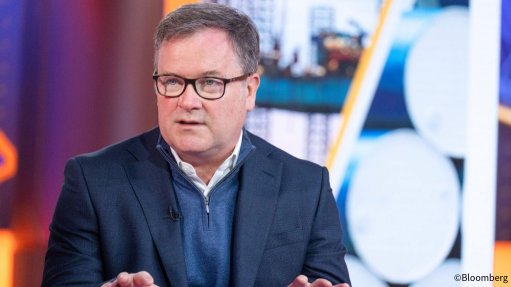ESG risks deter investments, says consultancy


YING LU With investors reluctant to invest, Lu expects that the electric vehicle and automotive sectors will create growth in the cobalt industry, which can heighten ESG concerns
The elevated levels of environmental, social and governmental (ESG) risks in the Democratic Republic of Congo (DRC) make many western mining companies reluctant to invest, as they are unable to obtain the required financing, explains energy research and consultancy company Wood Mackenzie senior analyst Ying Lu.
“The pressures on western mining companies from shareholders not to invest in ‘high risk’ countries, such as the DRC, also hamper the growth of the mining industry.”
Artisanal and small-scale mining (ASM) practices are prevalent in the DRC, and the sector is troubled by corruption, child labour and a lack of safety measures, hence the difficulty in ensuring that cobalt obtained from the DRC is not sourced from artisanal mining.
“The lack of transparency represents a huge ESG risk for brands that use cobalt-containing lithium-ion batteries,” adds Lu.
She says that the global demand for cobalt has grown substantially, in line with the rise of its use in battery applications.
“Our newly published ‘Cobalt Market Outlook to 2050’ shows that future growth will be largely driven by the fast-growing automotive sector, which has already overtaken portable electronics as the largest end-use for cobalt. The uptake of electric vehicles (EVs) will require more cobalt and inevitably heighten ESG concerns as end-consumers are inherently sustainability cautious customers,” she adds.
Lu asserts that, to address ESG risks, several initiatives have been put in place, such as the LME that now certifies its brands, the Mutoshi pilot project, as well as the Fair Cobalt Alliance.
“Most of these initiatives are looking to improve working conditions for artisanal mines and increase transparency in the supply chain.”
Further, Lu says that, since 2019, the Congolese government has been increasingly involved in addressing ESG risks by nationalising and formalising the ASM industry.
“The setup of the State monopoly Entreprise Générale du Cobalt and the Responsible Sourcing Standard, both in early 2021, were milestones in the cobalt industry, although it will take time to implement a standardised guideline that is widely accepted by the industry.
“Building up a transparent cobalt value chain needs a collaborative effort from all the stakeholders involved, from producers to consumers and policymakers. Challenges ahead remain huge, but we are clearly seeing many positive signs, with awareness growing at all levels,” she explains.
The country has established a strong cobalt and copper mining industry that has become a major driver for the country’s economy, with Congolese cobalt having been essential for various industries to prosper, including battery and superalloy industries.
Moreover, the DRC is expected to maintain its status as the leading global cobalt supplier, adds Lu.
“Foreign investment attracted by the industry has greatly improved the infrastructure and energy supply across the nation, increasing the standard of living for many Congolese people.”
However, she cautions that “the cost of cobalt mining in the DRC will increase over time as major operations will eventually move to more costly underground mining, given that high-grade heterogenite ores on the ground surface will be depleted soon”.
While the ESG risks currently impact on investment from western mining companies, Lu notes that these risks have not affected Chinese investment in the DRC’s mining industry.
“China has been investing heavily in the DRC in recent years and is also extending loans in exchange for access to mining concessions,” says Lu.
Further, cobalt has been designated a critical mineral for many countries and, consequently, some mining companies are opting for the use of cobalt alternatives.
“Some battery producers, such as SVOLT, in China have already commercialised nickel-manganese EV batteries, and car manufacturers, such as Tesla and VW, have indicated that they intend to use such batteries in their forthcoming EV models. The increased adoption of zero-cobalt, lithium-iron-phosphate batteries outside China is also likely to reduce cobalt requirement over the medium term,” Lu explains.
However, she adds that, despite the efforts to find alternatives, it will be difficult to nullify the use of cobalt.
“While the thrifting of cobalt continues across a spectrum of battery applications, we believe it remains technically challenging to eliminate its use, particularly in high-end portable electronic products, where the cobalt-rich, lithium-cobalt-oxide cathode will remain the cathode of choice, at least in the near term.
“The fast-growing EV battery sector will also drive cobalt demand in absolute volume terms, despite the declining intensity of use per unit,” she elaborates.
Hence, Lu says that the Kisanfu project in the DRC, which is owned by China Molybdenum and the Contemporary Amperex Technology company, is a notable project in the pipeline that might come into fruition later in this decade and can potentially impact significantly on the global cobalt market.
The Mutoshi project being developed by mineral processing company Chemaf, “also has the potential to be quite large,” she concludes.
Comments
Press Office
Announcements
What's On
Subscribe to improve your user experience...
Option 1 (equivalent of R125 a month):
Receive a weekly copy of Creamer Media's Engineering News & Mining Weekly magazine
(print copy for those in South Africa and e-magazine for those outside of South Africa)
Receive daily email newsletters
Access to full search results
Access archive of magazine back copies
Access to Projects in Progress
Access to ONE Research Report of your choice in PDF format
Option 2 (equivalent of R375 a month):
All benefits from Option 1
PLUS
Access to Creamer Media's Research Channel Africa for ALL Research Reports, in PDF format, on various industrial and mining sectors
including Electricity; Water; Energy Transition; Hydrogen; Roads, Rail and Ports; Coal; Gold; Platinum; Battery Metals; etc.
Already a subscriber?
Forgotten your password?
Receive weekly copy of Creamer Media's Engineering News & Mining Weekly magazine (print copy for those in South Africa and e-magazine for those outside of South Africa)
➕
Recieve daily email newsletters
➕
Access to full search results
➕
Access archive of magazine back copies
➕
Access to Projects in Progress
➕
Access to ONE Research Report of your choice in PDF format
RESEARCH CHANNEL AFRICA
R4500 (equivalent of R375 a month)
SUBSCRIBEAll benefits from Option 1
➕
Access to Creamer Media's Research Channel Africa for ALL Research Reports on various industrial and mining sectors, in PDF format, including on:
Electricity
➕
Water
➕
Energy Transition
➕
Hydrogen
➕
Roads, Rail and Ports
➕
Coal
➕
Gold
➕
Platinum
➕
Battery Metals
➕
etc.
Receive all benefits from Option 1 or Option 2 delivered to numerous people at your company
➕
Multiple User names and Passwords for simultaneous log-ins
➕
Intranet integration access to all in your organisation



















